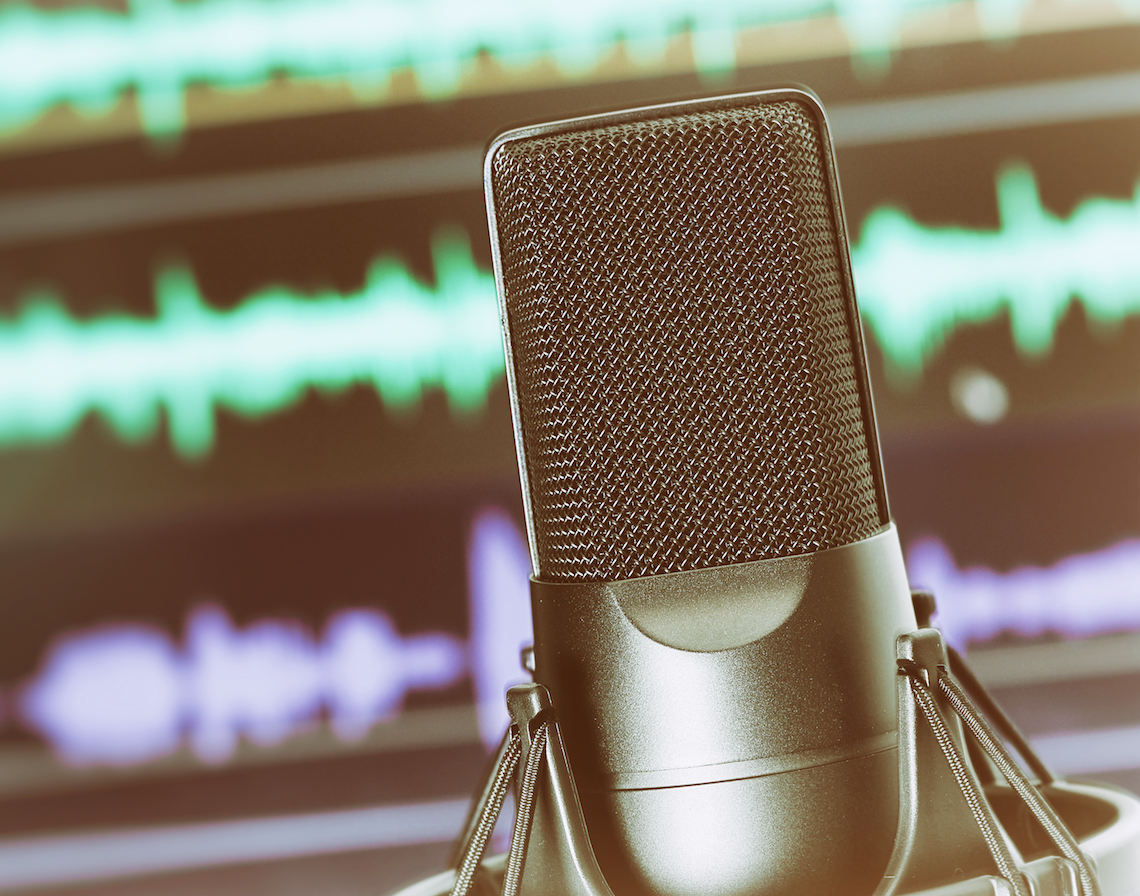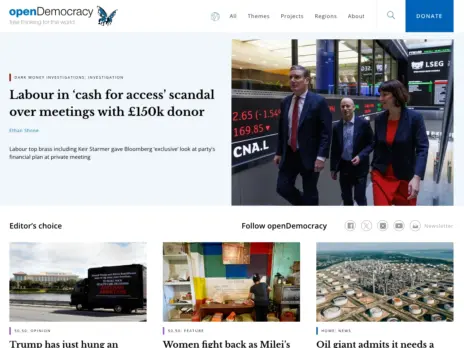
It is notoriously difficult to make money from podcasts.
Around 80m Americans listen to podcasts on a weekly basis, an Edison Research study found this month. But, according to Emarketer, the US podcast advertising market was worth less than $1bn last year (or around $14 per listener per year).
Despite the relatively low return, most big news organisations are investing significant resources into the medium, betting that the market will grow in the coming years.
Here, in the latest edition of Press Gazette’s ‘Platform Profile’ series, we speak to Ross Adams, the chief executive of Acast, a podcast hosting service that works with the BBC, CBC, Discovery, Vice, the Economist and the Financial Times. (It also hosts the Lock In with Jeremy Paxman, who did an interview with Press Gazette to talk about his podcast.)
In an interview (below), Adams explains how Acast is helping creators make money from podcasts. He tells Press Gazette: “The opportunity for podcasters of all sizes to make money from their work is growing every day.”
Read previous Press Gazette Platform Profiles here, featuring Apple News/ Apple News+, LinkedIn, Facebook News, Substack, PressReader and TikTok.
What is Acast?
Launched in Stockholm in 2014, Acast has grown to become one of the world’s foremost podcast hosting services.
As a host, it distributes more than 20,000 podcasts on to platforms including Apple Podcasts, Spotify and Google Podcasts.
Acast-hosted podcasts include Forever35, My Dad Wrote a Porno, The Margaret Cho, Pantsuit Politics and the Lock In with Jeremy Paxman (read Press Gazette’s interview on this podcast here).
It also works with a large number of well known media companies, including the BBC, PBS NewsHour, CBC, A+E Networks, Discovery, Vice, the Economist and the Financial Times.
According to Acast, its podcasts attracted an average of more than 300m listens per month in 2020. The host says it experienced a 144% increase in the number of podcasts on its platform in 2020.
How much does Acast charge to host podcasts?
Acast has four main podcast-hosting plans.
The ‘Starter’ option, which distributes creators’ podcasts to the main platforms and offers them basic analytics and a basic website, is free.
Its ‘Influencer’ package costs $14.99 a month when billed yearly or $25 if paid on a month-to-month basis. This offers creators distribution services, advanced analytics, a customisable podcast website, monetisation assistance and integration with crowdfunding site Patreon.
The ‘Ace’ plan costs $29.99 a month when paid yearly or $40 when paid on a month-to-month basis. For this price, Acast provides episode transcriptions, advanced support, webinars and other additional services.
Acast’s final option, ‘Premium’, is made available to “established” podcasts, publishers or networks, or those who expect to laucnh with 10,000 weekly listens. The pricing here is unspecified.
Show me the money: Q&A with Acast CEO Ross Adams
How do creators make money from podcasts?
Acast is a firm advocate of the open ecosystem in podcasting – that is, we don’t discriminate where creators can distribute their podcasts, or where listeners can access them. We help podcasters distribute their work far and wide, so listeners can access their podcasts for free on any platform they choose.
We also believe that creators should be able to make a living off their work on their own terms, so provide our podcasters with as many different monetisation options as possible.
Some choose to monetise through sponsorships and advertising, which we facilitate using our True Dynamic Ad Insertion technology. Audiences are able to listen to the podcasts for free across any podcast app or player, and may hear relevant, topical, targeted, and timely sponsorships and ads.
Others monetise using a listener-supported model. For instance, listeners may pay to receive access to bonus content — such as a bonus episode each week only accessible to paying members. For such podcasts, all audiences still have access to the free content distributed by the podcaster, and paying subscribers get access to even more.
How does Acast make money? Do its revenues mainly come from subscription fees and taking a cut from advertising on Premium accounts?
 Acast operates a robust podcast buying platform called Acast Marketplace, which connects podcasters with advertisers and allows creators to opt in and make ad inventory within their shows available for purchase.
Acast operates a robust podcast buying platform called Acast Marketplace, which connects podcasters with advertisers and allows creators to opt in and make ad inventory within their shows available for purchase.
Acast works with more than 3,000 brands globally, including more than a third of the Fortune 100 — working closely with buyers at agencies and brands to sell ad inventory across its creators’ content. Ad inventory can also be purchased programmatically.
Acast pioneered True Dynamic Ad Insertion in podcasting, which means that each time a person listens to an Acast podcast, a set of individually adapted ads are placed into the episode in real-time — geo-targeted and local to the listener’s market. That means two listeners may hear different ads, even if they’re listening to the same episode, at the same time, in the same place.
Acast’s global revenue totaled $66m in 2020. The company recorded a 71% increase in ad revenue growth from 2019 to 2020, with 40% growth in the number of new advertisers.
What are the different monetisation options available to podcasters? How large a listenership do podcasters need to build up before being able to significantly monetise?
See above. Podcasters can choose to monetise through sponsorships, through ads running within their content, or through a listener-funded model (for example providing bonus content to members).
Any podcaster opting into ads will receive monthly payouts, depending on the number of times an ad is served to a person listening to their show. Acast sells ads on a CPM (cost per mille) basis, with ad impressions measured in line with strict guidelines set out by the Internet Advertising Bureau (IAB) — and is the only podcast company certified against all four of the IAB’s measurement metrics.
Various reports have highlighted that it is difficult to make money from podcasts (e.g. https://www.axios.com/podcast-business-booming-few-making-money-d560010b-538f-472f-bf9d-3ea8deb97488.html). Why is this? Do you think advertisers have yet to grasp the scale of the opportunity?
The opportunity for podcasters of all sizes to make money from their work is growing every day. Podcast monetisation has rapidly diversified over the past few years, and continues to do so — and Acast continues to work on new tools and integrations for podcasters, so they can make more money from their work, in more ways, on their own terms.
Advertisers are recognising the huge opportunity represented by podcasting, and are seeing strong return on investment for podcast campaigns. They’re rapidly adopting programmatic buying, which allows for the automated and simplified purchase of podcast ad inventory. Through Acast Automated — the programmatic advertising arm of Acast Marketplace — Acast is leading the charge for the podcast industry, allowing advertisers to programmatically purchase inventory across particular shows and entire verticals within its portfolio of more than 20,000 podcasts.
And the appetite for programmatic buying is only growing: Acast Automated’s programmatic ad sales revenue grew 215% in 2020, and continues to accelerate.
How do you see the commercial side of podcasts changing in the next five years? Would you expect more podcasts to charge people for listening?
One big change we expect is that, due to an increased awareness of user privacy and new data laws — alongside Google retracting third-party cookies — the industry will no longer target ads based on user data. Instead, advertisers will serve messages to listeners based on context — something we’re pioneering at Acast with tools like AI-powered keyword ad-targeting.
Of course, you can have all the ad dollars in the world, but without podcasters — and without listeners — there’s no inventory to advertise on. If the creator economy is to continue to thrive as it has up until this point, we believe that our creator-first approach is absolutely vital. Rather than ‘walled gardens’, where platform-exclusive content locks podcast content — and the listener — to specific environments, Acast believes in the open ecosystem that podcasting was founded on.
In short, listeners should be free to listen wherever they like — and podcasters should be free to make money from those listeners, wherever they’re happening.
Photo credit: Shutterstock/ spaxiax
Email pged@pressgazette.co.uk to point out mistakes, provide story tips or send in a letter for publication on our "Letters Page" blog






